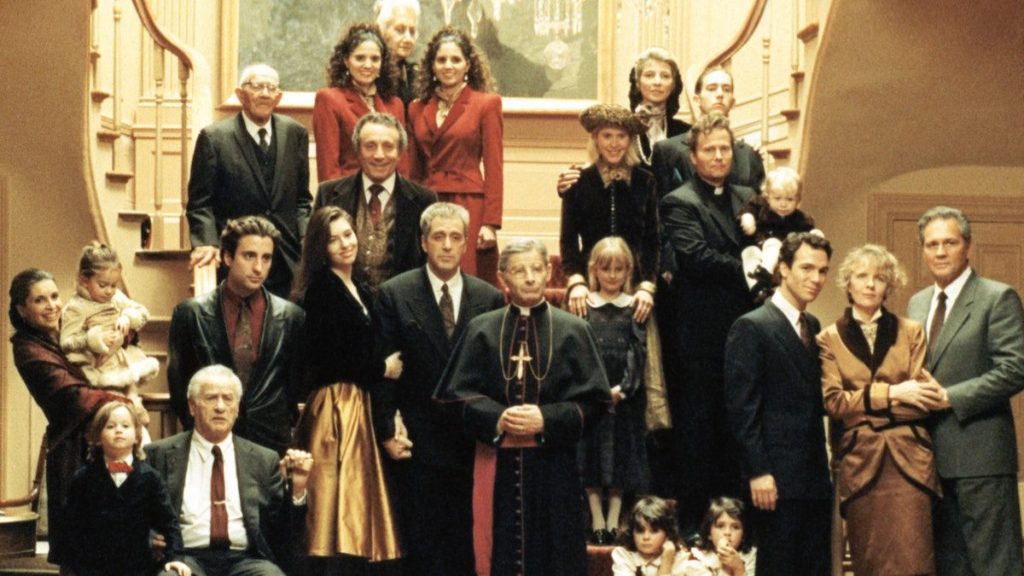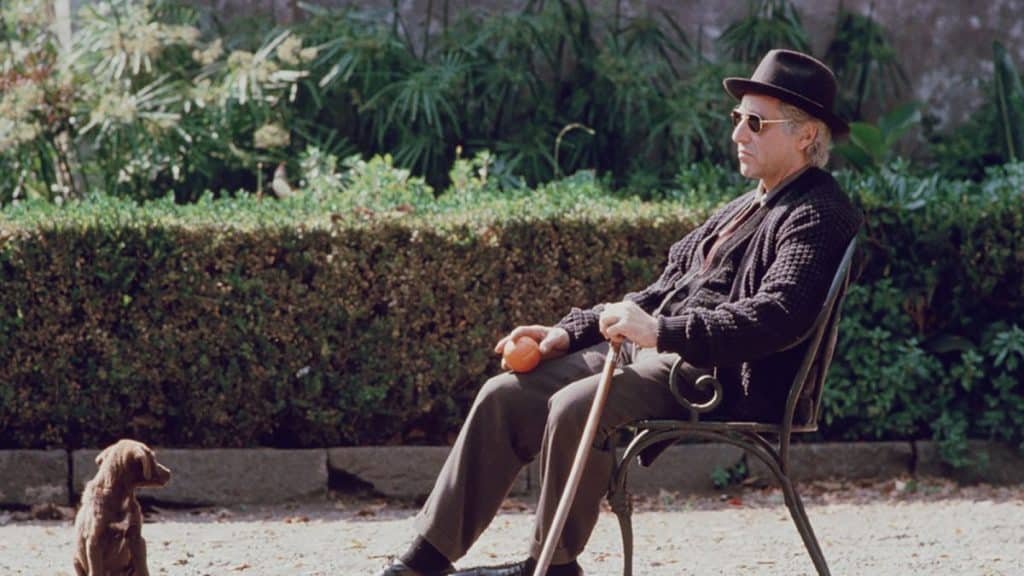Read also:
How to Watch FX Live Without CableHow To Watch AMC Without CableHow to Watch ABC Without CableHow to Watch Paramount Network Without CableAlthough it’s since been cemented as a derided flop upon its release 30 years ago this month, The Godfather: Part III (1990) was neither the critical nor critical disaster people remember it to be. It was a decent financial success and would go on to be nominated for seven Oscars, including Best Picture. However, a number of factors cropped up to help trash its reputation. It had a chaotic production that reached its apex when red-hot star Winona Ryder, cast as Mary Corleone, left the production just before her scenes were to be shot. Francis Ford Coppola replaced her with his non-actress daughter Sofia.
When it finally hit theaters that December, it arrived at the tail end of a glut of gangster movies—Goodfellas, Miller’s Crossing, State of Grace. It was also a holiday season that saw most of the biggest high-profile projects tanking as audiences flocked to Home Alone. And despite the high number of Oscar nominations, it went home empty-handed Dances with Wolves swept.
The punch line to all of this is that while it may have been made to help Coppola emerge from debt after One from the Heart (1982), The Godfather: Part III turned out to be a good movie after all. Sure, it was uneven in spots and not as overwhelmingly great as its predecessors, but it was still a noble successor. At its best points, it suggested its potential that might have emerged if Coppola had been able to better fine-tune before its Christmas Day release.

Coppola clearly must have felt the same towards the film as well. When it first hit home video in 1991, he put together a new version that was about eight minutes longer than its initial 162. Now he’s returned to it once again with The Godfather Coda: The Death of Michael Corleone, a presentation that clocks in at a comparatively svelte 158 minutes and features a new beginning and ending, as well as some re-edited scenes and new music cues.
This is nothing new for Coppola, of course. He’s created a cottage industry out of rethinking his older films. In some cases, these re-edits have proven valuable. The Cotton Club Encore (2019), for instance, took his fascinating-but-messy 1984 gangster musical and found a way of pulling its disparate elements together into a more satisfying whole. In some cases, they haven’t. Although the film buff in me was thrilled to see all the previously deleted footage in Apocalypse Now Redux (2001), it was evident that there was a reason why these scenes were dropped from the 1979 original.
In the case of Coda, the differences between it and the more maligned earlier version are not as pronounced as some have suggested. It’s more the passage of time that’s allowed people to look at the film with fresh eyes and realize that it was actually quite a good movie all along.
Now, a brief recap: set in 1979, the film finds the now-aging Michael Corleone (Al Pacino) making a final move to make his family’s business completely legitimate. It’s partially to solidify both his legacy and that of his children, especially his beloved daughter Mary (Sofia Coppola), and partly to assuage the guilt of his past. This entails entering into a deal with the financially beleaguered Vatican to purchase its shares in the powerful real estate company Internazionale Immobiliare for $600 million. Subject to papal approval, the move will give him controlling interest and make him one of the wealthiest men in the world.
Michael is also asked to mediate a dispute between his illegitimate nephew Vincent Mancini (Andy Garcia) and the rival boss, Joey Zaza (Joe Mantegna), that he works for at the behest of sister Connie (Talia Shire). Vincent and Mary soon begin a clandestine relationship that outrages Michael, and not just because they’re cousins, after all. The scene eventually shifts to Sicily where the family gathers to see Michael’s son make his opera debut. While there, the betrayals and bodies begin to pile up and Michael finally tries to come to terms with his past and settle things once and for all before (and during) a night at the opera. Like most operas, it doesn’t end quietly or happily.
Although there’s no notable new footage that I can recall, the rejiggering that Coppola has done here is generally for the best. The film now opens with a scene in which Michael strikes his deal to take control of Immobiliare, a scene that originally took place about 40 minutes in, and gives viewers a clearer notion of what’s at stake. The final moments have been trimmed down a bit and now have a slightly stronger emotional impact than the first go-around. Other scenes have been likewise trimmed in ways that slightly streamline things without losing anything of value, and the end result plays better than it did the first time around.
That said, the end result isn’t that radical of a change, and that’s because the film’s primary flaws are so baked into the proceedings that one can’t really cut around them. The first is the much-maligned performance by Sofia Coppola as Mary. Although she certainly looks the part of a slightly insolent mob princess and privileged daddy’s girl, her tentative line readings are a clear indicator that she’s not an actress, and to see her up against the likes of Pacino is occasionally cringe-worthy. (Happily, after licking her wounds following the film’s release, she would move behind the camera and become one of the best filmmakers at work today.)
Another big problem stems from the fact that Robert Duvall refused to reprise his role of consigliere Tom Hagen unless Coppola paid him properly. Instead, Coppola killed off Hagen entirely. Then he replaced his character with a new lawyer played by George Hamilton. Hamilton’s genial, glad-handing presence is so at odds with his surroundings that when he’s on-screen, you find yourself yearning for Mary’s return.

At the same time, Coda also serves as a reminder that the film, while flawed, always had some great things in it as well. Coppola is famous for his grandly cinematic set pieces and three of the ones seen here are among the best he’s ever done. There’s Zaza’s aerial attack on the penthouse where the rival mob family heads families have gathered. Then there’s Vincent’s retaliation against him during the street festival commemorating the Feast of San Gennaro and, of course, the opera house climax. While at times messy, the screenplay that Coppola and Mario Puzo cooked up deserves points for audacity alone for including theories involving alleged real-life ties between organized crime and the Catholic church as a key element of the plot.
There are a number of strong performances as well from the large supporting cast. Shire finally gets something to do as Connie and makes the fearsome most of it. Garcia is pretty spellbinding as Vincent (even when the material falters), and Bridget Fonda pops up briefly as a journalist who flirts with Vincent for a story, much to her regret. She makes such an immediate impression that it’s hard to understand why Coppola didn’t just cast her as Mary.
Most of all, there’s the sight of Pacino bringing the character that brought him stardom to a close. Yes, there are moments where he’s allowed to go broad in his inimitable manner, and they’re entertaining enough. That said, he’s just as strong and effective in the quieter moments as well. The scene in which he at long last confesses his sins is one of the best things that he’s ever done in a movie. Having charted his growth from earnest war hero to ruthless businessman and killer over the predecessors, to see him try (and fail) to burnish his legacy is a powerful experience. Ultimately, it helps make The Godfather Coda a worthy conclusion to one of the all-time great screen sagas.